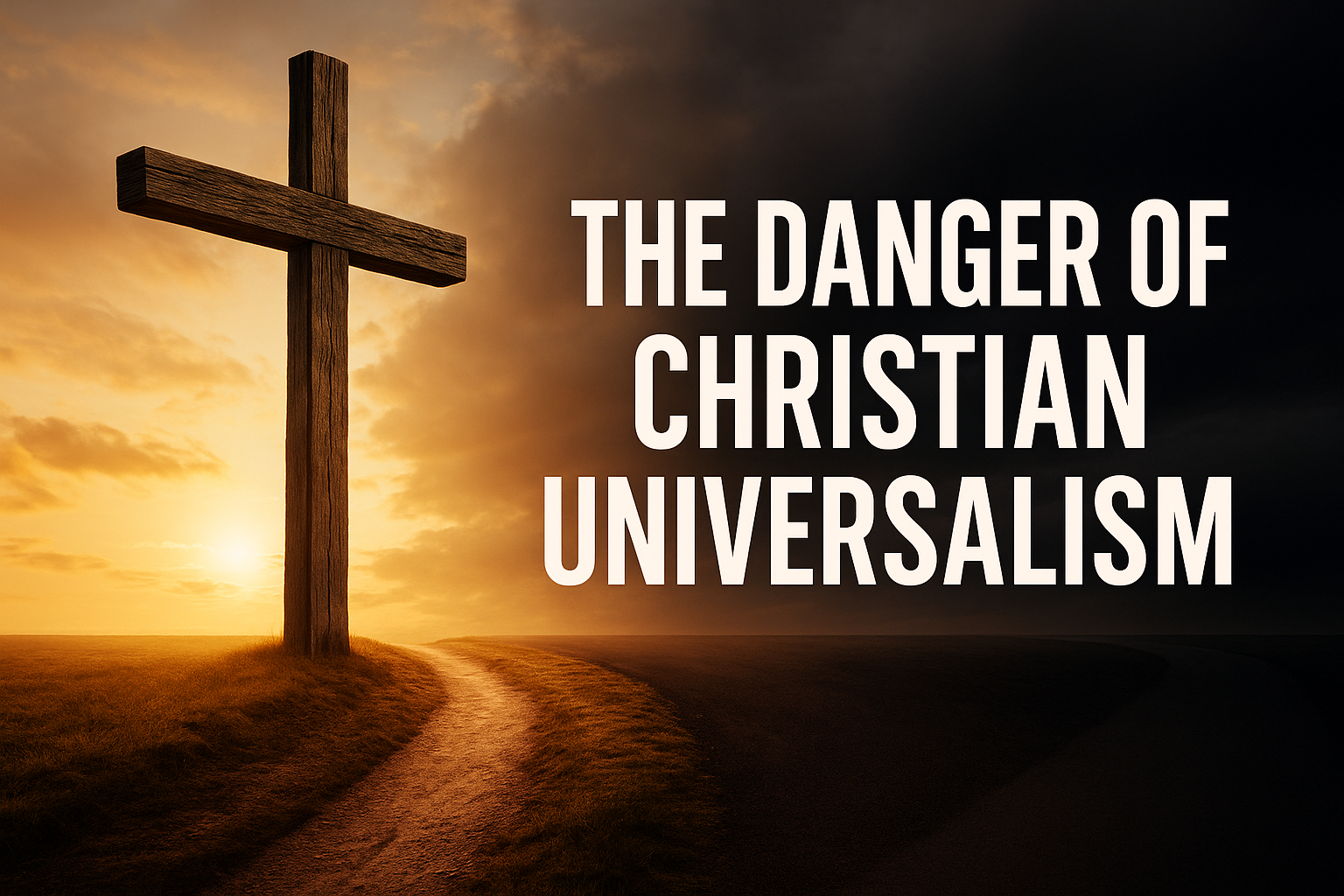⏱️ Estimated Reading Time: 2 min read
Contending for the Word, September 15, 2025
The Danger of Christian Universalism
Written by Dave Jenkins
Introduction
In recent years, a growing number of teachers have claimed that in the end, everyone will be saved. This teaching, often called Christian universalism, denies the reality of eternal punishment and redefines the gospel. While it may sound compassionate, universalism is not biblical, and it undermines the very heart of Christianity.
Question: What is the danger of Christian universalism?
What Is Christian Universalism?
Christian universalism is the belief that because God is loving, He will ultimately save all people, whether or not they repent and believe in Christ during this life. Some versions claim that people may be purified after death, while others suggest that hell is temporary or symbolic.
Why Is It Dangerous?
It Denies the Authority of Scripture
Scripture clearly teaches that those who reject Christ will face eternal punishment (Matt. 25:46, Rev. 20:11–15). To embrace universalism, one must ignore or twist these passages.
It Undermines the Gospel
If everyone is saved regardless, then Christ’s death on the cross is unnecessary (Gal. 2:21). The good news becomes meaningless if salvation is automatic.
It Minimizes God’s Justice
Universalism downplays sin and God’s holiness. The Bible is clear, God’s wrath against sin is real, and His judgment is just (Rom. 1:18, Heb. 9:27).
It Provides False Assurance
By teaching that all roads lead to heaven, universalism removes the urgency of repentance and faith in Christ (Acts 4:12).
The True Gospel
The Bible proclaims both the love and justice of God. Christ bore the wrath we deserve, offering forgiveness and eternal life to all who repent and believe in Him (John 3:16–18). Salvation is offered freely, but it is not automatic.
How Should Christians Respond?
- Cling to the truth of God’s Word (2 Tim. 3:16–17).
- Proclaim the exclusivity of Christ (John 14:6).
- Warn against false teaching with compassion and clarity (Acts 20:28–30).
- Live with urgency, knowing that eternity is at stake (2 Cor. 5:10–11).
Conclusion
Christian universalism may sound hopeful, but it offers a false hope. True hope is found only in Jesus Christ, who saves sinners by grace through faith. The church must stand firm against universalism, contending for the truth of the gospel and pointing people to the only Savior.
Check out Contending for the Word Q&A at Servants of Grace and our YouTube.
Dave Jenkins is happily married to his wife, Sarah. He is a writer, editor, and speaker living in beautiful Southern Oregon. Dave is a lover of Christ, His people, the Church, and sound theology. He serves as the Executive Director of Servants of Grace Ministries, the Executive Editor of Theology for Life Magazine, the Host and Producer of Equipping You in Grace Podcast, and is a contributor to and producer of Contending for the Word. He is the author of The Word Explored: The Problem of Biblical Illiteracy and What To Do About It (House to House, 2021), The Word Matters: Defending Biblical Authority Against the Spirit of the Age (G3 Press, 2022), and Contentment: The Journey of a Lifetime (Theology for Life, 2024). You can find him on Facebook, Twitter, Instagram, Youtube, or read his newsletter. Dave loves to spend time with his wife, going to movies, eating at a nice restaurant, or going out for a round of golf with a good friend. He is also a voracious reader, in particular of Reformed theology, and the Puritans. You will often find him when he’s not busy with ministry reading a pile of the latest books from a wide variety of Christian publishers. Dave received his M.A.R. and M.Div through Liberty Baptist Theological Seminary.




